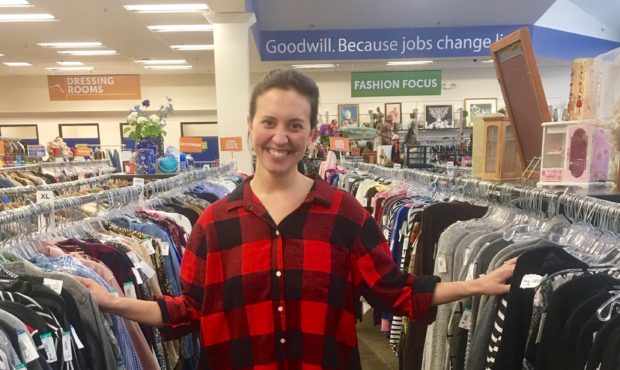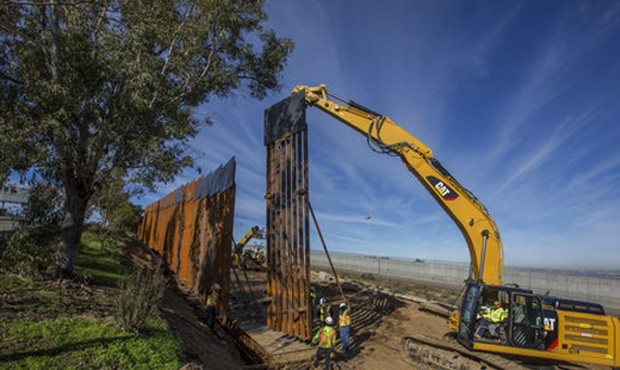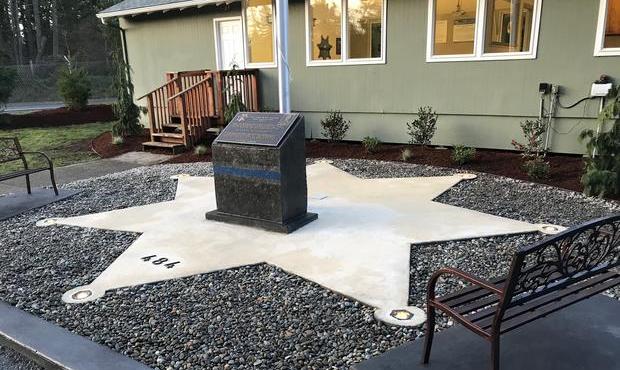Gov. Jay Inslee’s orca protection order not enough, expert says
Mar 15, 2018, 8:03 AM | Updated: 8:20 am

An endangered female orca leaps from the water while breaching in Puget Sound west of Seattle, Wash. Jan. 18, 2014. (AP Photo/Elaine Thompson, File)
(AP Photo/Elaine Thompson, File)
Governor Jay Inslee issued an executive order Wednesday, March 14, calling for more state action to protect the region’s orca population.
“It’s not enough, but I certainly commend him for bringing attention to these whales and the situation they are in,” Ken Balcomb told Ron and Don. “But we have to do a lot more. The Salish Sea wasn’t the only place they found food in the ’70s when we began our study. They were also eating the Columbia-Snake River fish, the Sacramento-San Joaquin fish, and all up the coast of Vancouver Island. So we have to do restoration throughout range of these whales.”
RELATED: 2016 was the deadliest year for orca
Balcom has been studying whales since the 1970s. He founded the non-profit Center for Whale Research in 1985. He specializes in the study of the southern resident killer whales.
Balcom says the orca population is at a 30-year low — from 98 whales in 1995 to the current count of 76.
“They are no longer resident in the Salish Sea area,” Balcomb said. “They are resident to the eastern-north Pacific coastal waters … most of the time they spend their time around the Washington coast and the west side of Vancouver Island.”
“We’ve done our best to make things hard for them,” he said. “In the ’60s and early ’70s, we captured them and sold them to marine parks around the world. We took out about 50 of them. We were left with about 70 of them when we started our study in 1976. About that same time, fishermen in the area – sport fishermen and commercial – caught about 1.5-1.9 million 20 pound Chinook salmon a year in this region. Both the fisherman and the whales were happy. But we fished out the salmon and we damned the rivers and we destroyed the habitat for the food supply for these whales. Even though they recovered from being captured for display … there just isn’t enough food to support that many. So the population is going down.”
Executive order
Inslee calls for the formation of a Southern Resident Killer Whale Task Force. The group will develop a long-term plan for the recovery of the orca population.
In his executive order, Governor Inslee’s states:
-
Washington Department of Fish and Wildlife (WDFW) with review from the Governor’s Salmon Recovery Office (GSRO) and the Puget Sound Partnership (PSP) —By July 31, 2018, identify the highest priority areas and watersheds for Southern Resident prey in order to focus or adjust, as needed, restoration, protection, incentives, hatcheries, harvest levels, and passage policies and programs.
-
WDFW and Washington State Parks and Recreation Commission (WSPRC) —By April 30, 2018, develop implementation plans for increased enforcement, outreach and education of vessel regulations as well as enforcement of Chinook fisheries regulations in areas frequented by orcas.
-
Washington State Department of Ecology (Ecology)—By April 30, 2018, create a curriculum to improve and increase the number of trainings for vessels in the whale watching industry to become “vessels of opportunity” to assist in the event of an oil spill.
-
Washington State Department of Transportation (WSDOT) —By May 31, 2018, develop strategies for quieting state ferries in areas most important to Southern Residents.
-
WDFW —By April 30, 2018, review and amend, as needed, 2018 recreational and commercial fishing regulations prioritizing protection of key areas and fish runs for Southern Resident recovery. I will also ask our tribal co-managers, and international and federal fisheries managers to work directly with WDFW and its Commission in developing recommendations for implementing this action.
-
WDFW—By April 30, 2018, explore options and develop a proposal to alter fish food used in state hatcheries to limit the amount of Polychlorinated Biphenyls (PCBs) in Southern Resident prey.
-
PSP, WDFW, GSRO —By December 15, 2018, demonstrate how Chinook recovery projects benefit Southern Resident recovery, beginning in the 2018 grant round, for the Pacific Coast Salmon Recovery Fund, the Puget Sound Acquisition and Restoration Program, the Estuary and Salmon Restoration program and the Washington Coastal Restoration Initiative.
-
PSP, WDFW, GSRO, WSPRC, Washington State Department of Licensing (DOL) — By July 1, 2018, prioritize existing outreach resources to support Southern Resident recovery. Collaborate with the Governor’s Office to develop a public education program and identify needed resources.
-
Ecology — By July 31, 2018, develop criteria to prioritize financial assistance beginning in the 2019-21 biennium for storm water projects that benefit Southern Resident recovery.













